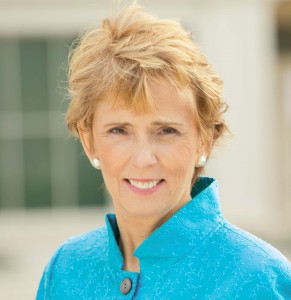POST: The Value of Coaching in Medicine
With Jack Penner
 Jack and I recently joined Dave Etler, Administrative Services Coordinator for Student Affairs and Curriculum with Carver College of Medicine at the University of Iowa, and Carver medical students Amy Young, Aline Sandouk, and Mark Moubarek at The Short Coat Podcast for “weird news, fresh views, helpful blues, and interviews by students, for students” to talk about the value of coaching for medical students.
Jack and I recently joined Dave Etler, Administrative Services Coordinator for Student Affairs and Curriculum with Carver College of Medicine at the University of Iowa, and Carver medical students Amy Young, Aline Sandouk, and Mark Moubarek at The Short Coat Podcast for “weird news, fresh views, helpful blues, and interviews by students, for students” to talk about the value of coaching for medical students.
This all started when a Georgetown faculty member and a former student of mine thought Jack and I were kindred spirits and so connected us. That meeting led to a coaching relationship and our first Med Ed Pop Up Workshop. We’re writing a series of articles on what it’s like to be coached in medical school.
The podcast interview
Here is a brief transcript of our conversation:
Dave [to Jack]: “What is it that hooks you in? What secret drug has Maggi fed you?”
Jack: “I think it just feels different than the type of mentorship and guidance that we usually get in traditional medical education. For me, this is about improving who I am as a person and also as a student clinician. It goes beyond the decision of ‘Should I do research?’ ‘What field should I go into?’ and ‘Where should I apply for residency?’
“[Coaching] goes a little bit beyond that and into mindsets and behaviors. The thing that really helps me is I can feel tangible progress every step of the way, and it’s so rewarding as a student when you want so badly to develop into a good physician, and also to maintain balance throughout medical school. Maggi really helps to give me that space to explore how I’m going to do all that, and in an environment that’s a lot different than a classroom where there’re grades, assignments, and lectures.”
Aline: “It sounds a lot like counseling, but with a bit more accountability, and a bit more direction from someone who’s actually in the field you want to go into and has personally experienced this process. Have you ever been through counseling and do you feel this was distinctly different? Have you any thoughts about that?”
Jack: “I’ve never had a counselor, but I’ve talked with friends who have. Maggi and I focus on challenges where we feel we can do something about it. What can we do to move forward? That’s very refreshing as a student because most of us get wrapped up in our heads, start to over-analyze, and dwell on things. Coaching really pulls you out of that vicious cycle of just ruminating on stuff in your head and brings you toward action.”
Maggi: “One of the things as coaches that we like to think is that we’re more focused on action. A therapist, or counselor, might be more like an archaeologist, looking at the past. As a coach, I like to think of myself more as an architect. I’m co-creating the future with my clients.”
Amy: “How would you say that’s different, or is this similar to consulting?”
Maggi: “That’s a great question. I always love that one. If I were a consultant, I would walk in. I’d talk with a bunch of people and I’d say, ‘Here’s what you need to do.’ And then I’d leave.”
Mark: “So the ongoing relationship is the big part?”
Maggi: “Right, usually in six-month increments. (The engagement) is driven by what the coaching client wants and what the organization believes will work with the organization.”
Aline: “So it implies more of an emotional investment and an intellectual investment in your client as opposed to a coaching relationship, which is really focused on increasing efficiency to drive profit-making.”
Maggi: “I get to know my clients in ways sometimes I don’t think their spouses know them.”
Aline: “That’s very appropriate for a doctor. There are things that people tell their doctors that their best friends don’t know, their parents don’t know. It seems like your training as a physician perfectly prepares you for this job in so many ways, not only that you know this field, but also, you understand the importance of how intimate are the details that people are revealing about themselves. And you appreciate that and capitalize on that to help in their lives. That’s awesome.”
For the rest of the conversation, check out The Value of Coaching in Medicine.
[mashshare]CATEGORY:Recent Blog Articles

In Medicine, The “Soft” Skills Are Essential
Michael’s Story: The Beginning “I’m straightforward, to the point,” said Michael, the CEO at a large inner-city hospital. “The people I work with—they may not like me, but they know I’m right.” “What else?” I said to Michael, whom I had just been retained to coach. “I just wish they understood me. I do what’s […]
CATEGORIES: Coaching Emotional Intelligence Physician Leadership

Dr. Margaret Cary spoke at the American Society of Hematologists
December 3, 2018 Dr. Cary delivered an interactive presentation on Women’s Leadership at the Women in Hematology reception at the ASH’s annual meeting of nearly 28,000 attendees in San Diego.
CATEGORY: Coaching

What We Can Learn About Leadership from The Boss
A Bruce (The Boss) Springsteen fan reflects on what her coaching clients can learn about leadership from him.
CATEGORY: The Doctor Weighs In

Develop a Coaching Culture
What might you do to develop a coaching culture in your office, in your organization? “I know I blow up and get angry. I am protective about my patients and the physicians in my department and I can’t help myself.” Dr. Leonard was one of my coaching clients, a surgeon who had left a trail […]
CATEGORIES: Coaching Physician Leadership

The Value of Coaching in Medicine
With Jack Penner Jack and I recently joined Dave Etler, Administrative Services Coordinator for Student Affairs and Curriculum with Carver College of Medicine at the University of Iowa, and Carver medical students Amy Young, Aline Sandouk, and Mark Moubarek at The Short Coat Podcast for “weird news, fresh views, helpful blues, and interviews by students, for students” […]
CATEGORY: Medical Education

The Value of Presence in Medicine
When an American doctor is asked to examine her friend’s mother in a Chinese hospital, she realized it was her presence and caring that really mattered. Zhuo came with a self-assured attitude, lots of stories, and several films under her belt. I had volunteered to host a film director during the Denver International Film Festival. […]
CATEGORIES: Emotional Intelligence Quality of Care
